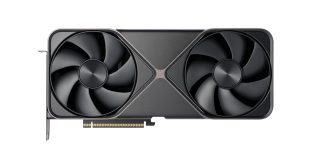Returnal became a surprise hit when the 3rd-person shooter roguelike released exclusively for PlayStation 5 last year. Since its console debut, rumours and leaks sprung up suggesting that the game would be coming to PC. Finally, at The 2022 Game Awards, Returnal has officially been announced to be coming to the platform in 2023.
Announced at the 2022 Game Awards – and elaborated upon further via the PlayStation Blog – developer Housemarque said “Our award-winning 3rd person shooter roguelike, Returnal, is coming to PC!”
As with all previous PC conversions of PlayStation exclusives, Returnal will be taking full advantage of the increased power ceiling afforded by PC hardware, with the team saying:
“For our PC version there will be an array of PC specific tweaks and upgrades to make sure that the experience is as fluid as possible. More on these details later, but rest assured that you will be faced with a cutting edge Housemarque challenge, and the bells and whistles are there to support the gameplay experience including the relentless challenge of the Tower of Sisyphus and online co-op mode.”
While they did not go into specifics, we previously reported on a leaked video showing off Returnal’s options menu on PC, showcasing that this version will feature a whole host of rather significant improvements including ray-tracing; manual resolution scaling; dynamic resolution scaling; DLSS; AMD’s FSR; VRS; and even Nvidia’s NIS image scaling technique. Returnal will be coming to PC in Early 2023.
Discuss on our Facebook page HERE.
KitGuru says: Are you excited for Returnal to come to PC? Did you play it on PS5? What added options do you want to see? Let us know down below.
 KitGuru KitGuru.net – Tech News | Hardware News | Hardware Reviews | IOS | Mobile | Gaming | Graphics Cards
KitGuru KitGuru.net – Tech News | Hardware News | Hardware Reviews | IOS | Mobile | Gaming | Graphics Cards


